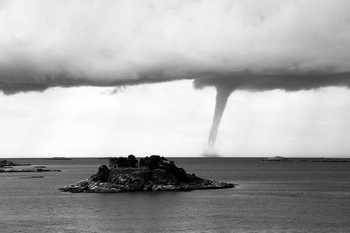More than 200, 000 people from around the world are descending on the Russian city of Sochi this month for the 22nd Winter Olympics. Well-publicized have been the Olympics security threats that are being anticipated, and dealt with, prior to the games. Some of these threats are large but, for those attending the Games, the smaller security issues are of equal concern.
Large-scale Olympics threats have been few
Ever since the 1972 Munich Olympics terrorist attacks when 11 Israeli athletes were killed by terrorist kidnappers, security has been the number one priority for event organizers. That new level of awareness that things can go very wrong quickly was heightened at the 1996 Atlanta games when the Olympic park bombing occurred, killing two people and injuring 111. While these two incidents are the only violent acts to disrupt the Olympics, the post-September 11th world requires an ever-increasing attention to security at the Games.
Far outside Sochi presents the biggest security threats
Sochi Olympic organizers, security professionals, police and military leaders have stressed that a “Ring of Steel” has been created as a perimeter for the Games. Inside the geographic ring zone, more than 40, 000 police and military personnel will provide the most manpower for protection the Olympic games have ever seen. However, the threat of a large impact event taking place potentially far outside the ring is all too real.
During the two weeks of the Games, all eyes will not only be on Sochi but, all of Russia. An attack outside of the Ring of Steel will be noticed and reported to an international audience, all of whom are hyper-focused on the region, the Games and any incident that could be seen as one of terrorism. Groups intending to get their cause noticed may look far outside of Sochi for “soft targets, ” those not as protected as the Ring of Steel zone, since any incident will grab international headlines.
Transit zones are at risk in Sochi
If an attack or other terrorist incident were to occur, transit zones will become a huge target at the Sochi Games. The biggest threat comes from the natural flow of people away from an attack zone and to the quickest exit routes: public transit and major roadways. And while that may seem like the safest course of action, we see this as an additional, and potentially more damaging, threat. Terrorists may be likely to plant one device to create confusion and hysteria, causing many to flee to bus stations, train stations and their cars in which they drive to the nearest highway. With an intense concentration of people, a second device could cause even greater damage at these hot spots.
We have recommended to our clients attending the Games that they do not follow this mass movement of people but rather they find a place to lay low, and out of the way of security until the situation calms down. We then recommend that they make their way back to a resort, hotel or a safe zone by way of back streets and alternative routes.
If an incident occurs, many will look to leave Russia. Again, the natural tendency to want to get to the airport will put many in another hot zone that could be the next target. We recommend that people consider finding a way to get to Turkey for safer passage back to their home country. One route to consider is by boat. Charters will be available and could bring people to a Turkish port safely from which one could get to an airport which would be far less of a target.
Personal security risks are just as real
Large-scale threats at the Sochi Olympics are monopolizing press headlines these days. While people should certainly heed all warnings and be on the lookout for suspicious activities, they should also consider their own personal safety as they attend the Games. If there is an incident many miles outside the Ring of Steel, that will take some security attention away from the interior zone. We urge people to be on alert since the first incident could be a screen for a larger one closer to the venues.
How to avoid pickpockets at the Sochi Olympics
Not every threat is a violent one. People should be aware the pickpockets will be on the lookout for tourists who they will assume are carrying more money than the average Russian. We recommend having a “throw-away wallet” handy. This wallet, which is not your real one, should be readily available to you should someone threaten you and ask for your money. It should look well used; have a small amount of money, a few canceled credit cards and some other things to make it look real. It will likely satisfy the attacker. Somewhere much more hidden and hard to get to should be your real wallet, which has your proper identification, money, and real credit cards.
The Sochi Olympics should be a wonderful expression of human achievement in sports and in all likelihood; it will go off without incident. But, paying attention to large and small scale threats, including updates from the U.S. Embassy in Moscow, and heeding our recommendations could make a big difference if something goes wrong.





